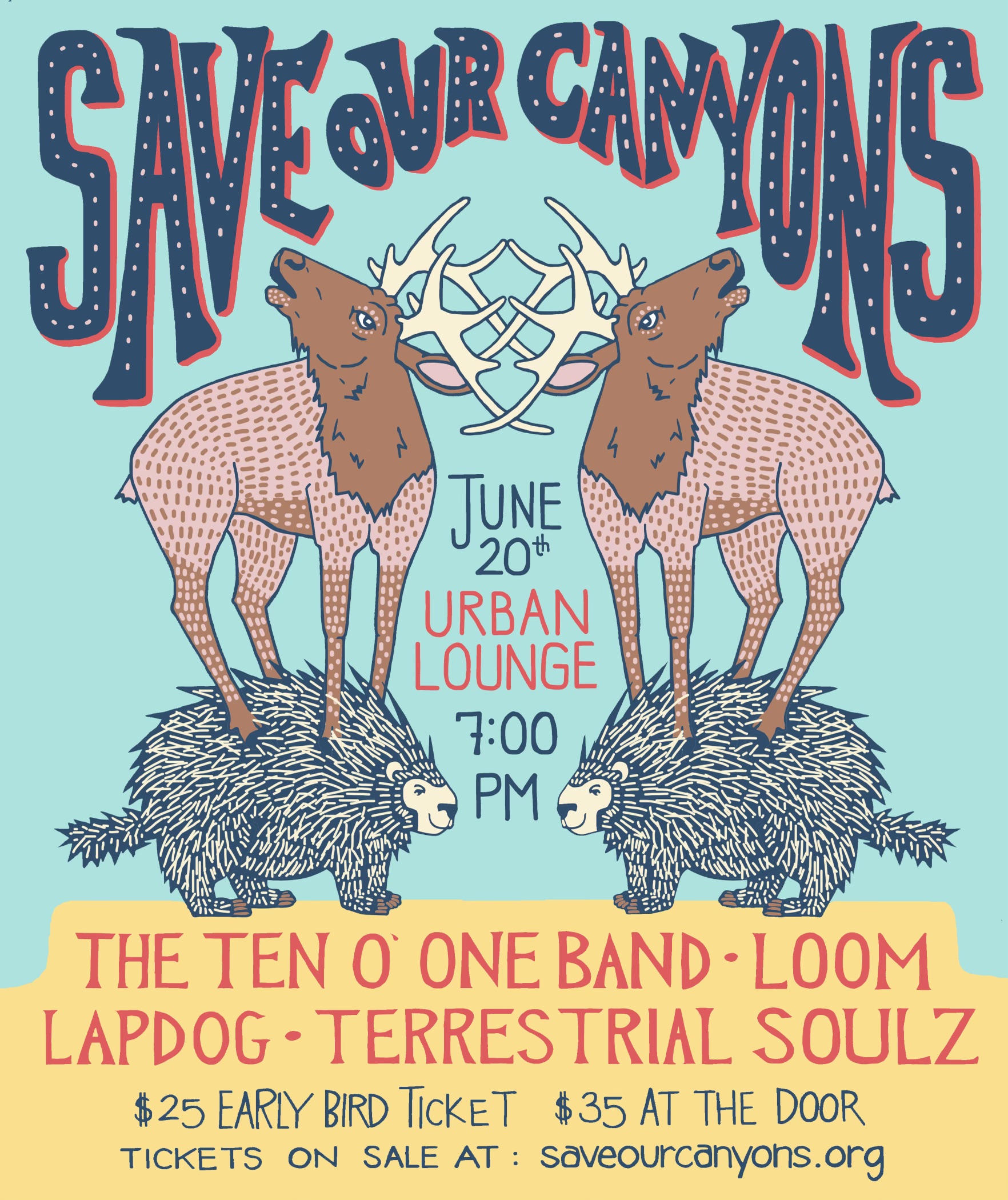It likely comes as no surprise that the 2024 legislative session was full of ups, downs, and difficult bills. But our incredible community showed up in force to advocate for the beauty and wildness of the Wasatch Mountains.
The legislature introduced over 900 bills and resolutions, passing a record-breaking 591 bills during the 45-day session. Save Our Canyons closely tracked over 50 bills engaging with land use, water, wildlife, recreation, and transportation in and around the Wasatch Mountains. Here are a few highs and lows of the session:
Huge Wins for Parley’s Canyon
Thanks to your engagement, we were able to defeat S.B. 172 Protection Areas Revisions and the original version of H.B. 502 Critical Infrastructure and Mining - two mining bills that would have negatively impacted the entire Wasatch, including the proposed gravel pit in Parley’s Canyon. Over 1,400 individuals took action and collectively sent over 10,000 messages to legislators asking them to vote no on the two bills. As a direct result of your advocacy, S.B. 172 never received a committee hearing and H.B. 502 was entirely rewritten as a study to analyze the supply and demand of gravel, sand, and rock aggregate.
S.B. 172 would’ve allowed mining operations to expand with little to no oversight from local governments. Similarly, H.B. 502 would’ve limited local control over mines and gravel pits while also mandating local governments provide water for those operations.
We wholeheartedly support long-term planning for solutions to our infrastructure needs and where we acquire aggregate, but the planning process needs to consider impacts to our watersheds, water conservation efforts, air quality, flora and fauna, and public health. We’ll work to engage with legislators and state agencies during the upcoming study (required by H.B. 502) and advocate for a holistic approach.
Efforts to Proactively Protect Our Natural Spaces
Two exciting measures were introduced this session, both of which aimed to improve protections for natural resources and wildlife.
H.B. 243 Riparian Amendments by Rep. Bennion (Cottonwood Heights) would’ve required local governments to develop plans around the management of riparian areas and would've created a new position in the Utah Department of Natural Resources to provide specialized expertise to local governments on riparian planning. Simply put, riparian areas are land along the banks of rivers, streams, lakes, or other bodies of water that exhibit characteristics of both terrestrial and aquatic habitats. These areas are critical to helping maintain water quality, supporting biodiversity, mitigating the risk of floods, and preventing erosion.
H.B. 195 Land Use Planning Amendments by Rep. Owens (Salt Lake City) would’ve required local governments to consider the impacts of new development on wildlife before adopting general plans or land use regulations. Encouraging local governments to take wildlife and wildlife habitats into consideration during planning processes is a proactive way to assess how projects may negatively affect our natural environment and how to mitigate those impacts.
Although these two bills ultimately failed to pass, they prompted important discussions about how to best manage our natural spaces. Save Our Canyons will continue to advocate for legislation to protect our priorities throughout the interim session this year and look for future opportunities to advocate for these proactive efforts to protect the Wasatch in future legislative sessions.
Concerning Rhetoric Around Public Land Management
This session, we followed a number of bills that attempted to challenge or redefine the federal government’s role in managing federal lands in Utah. H.B. 409 Presumption of State Jurisdiction Amendments (failed), H.B. 471 Public Lands Possession Amendments (passed), and S.B. 75 Mineral Amendments (failed) all asserted that Utah should have a greater role, if not the ultimate say, in how federal lands are managed within the state. This is a concerning trend, given the way legislators often view conservation efforts in Utah.
For example, legislators expressed disapproval towards the Bureau of Land Management’s proposed Public Lands Rule (or Conservation Rule) this session. H.B. 496 Public Land Use Amendments by Rep. Albrecht calls on the Utah Public Lands Policy Coordinating Office (or PLPCO) to take an official position in opposing the BLM’s proposed Public Lands Rule. The new rule would put conservation on an equal footing with other uses (which include livestock grazing, mining, energy development, timber harvesting, and outdoor recreation), allowing the BLM to protect and restore sensitive habitats. The bill was signed into law by Gov. Cox last week.
The authority to manage federal lands is a constitutional right reserved for Congress. Thinly-veiled efforts to pass that responsibility to states, who in almost every case don’t have the resources or expertise to manage federal lands, are short-sighted. Save Our Canyons will continue to advocate against legislative efforts to transfer land management authority away from the experts.
From the entire team at Save Our Canyons, thank you for your steadfast advocacy in helping to protect the Wasatch Mountains. We can’t continue this important work without you. Save Our Canyons will continue to show up in force in Utah’s state legislature to advocate for solutions which protect the Wasatch for future generations.


